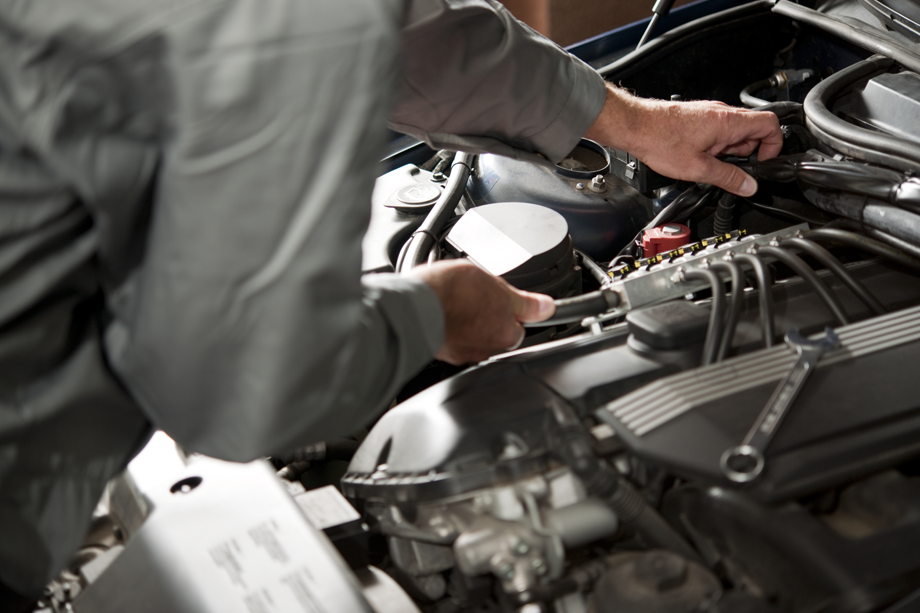All Categories
Featured

Comprehending the difference between routine upkeep and repairs is crucial to ensuring your car remains in leading condition and runs efficiently throughout its life. Regular maintenance is regarding prevention and continuous care, while repair work are required when something breaks or malfunctions.
Routine Upkeep: Avoiding Future Troubles. Routine maintenance involves the regular, scheduled solutions that keep your vehicle in excellent functioning order and protect against problems from developing. These jobs are designed to ensure that all parts of your cars and truck remain to function as they ought to and assist keep the vehicle's integrity. Normal upkeep is normally laid out in your cars and truck's owner manual, defining when to execute specific jobs based upon gas mileage or time intervals.

Some examples of regular maintenance consist of:
Oil Modifications: Oil lubes the engine, guaranteeing it runs efficiently and successfully. Routine oil modifications, usually every 3,000 to 5,000 miles, help protect against engine wear and maintain the car running efficiently. Tire Turning and Harmonizing: Tire turning aids even out tire wear, while balancing makes sure smooth handling and improves tire longevity. This need to be done every 6,000 to 8,000 miles. Brake Inspections: Your cars and truck's braking system requires routine checks to ensure the pads remain in excellent problem, the fluid degrees suffice, and the rotors are operating well. Liquid Checks: Keeping an eye on vital liquids, consisting of transmission liquid, coolant, brake fluid, and power steering liquid, assists keep the engine and other systems operating efficiently. Air Filter Replacement: The engine air filter maintains dust and debris from going into the engine. Changing it frequently aids keep engine efficiency and fuel efficiency. These upkeep tasks are preventive in nature, developed to prolong the life of your lorry and minimize the risk of break downs. By carrying out normal maintenance, you can catch tiny problems before they intensify into bigger, extra pricey troubles.
Fixes: Fixing Troubles That Occur. Repair services, on the other hand, are required when a component of your automobile falls short or damages down. Unlike routine upkeep, which is concentrated on prevention, repair work are reactive measures taken when something breakdowns or puts on out.

Examples of common repair work include:
Transmission Issues: Issues such as sliding equipments, problem shifting, or unusual sounds may signal a breakdown in the transmission, calling for repairs or substitute. Engine Services: If the engine is misfiring, overheating, or revealing various other indications of difficulty, it might need a repair service or replacement of particular components like the ignition system, timing belt, or sensors. Brake Fixes: If your brakes are squealing, making grinding sounds, or stopping working to quit the automobile successfully, you might require to replace brake pads, rotors, or calipers. Battery Replacement: If the car has trouble beginning or the battery warning light appears, it might be time to replace the battery. Suspension and Steering Fixings: If you experience uneven tire wear, a rough ride, or trouble guiding, maybe a sign that the shock absorber or steering components require repair service. Repair services are typically much more pricey than routine upkeep because they include taking care of problems that can impact the automobile's safety and security or functionality. Depending upon the severity of the issue, repair services may call for specialized parts and labor.
Secret Differences Between Regular Maintenance and Fixings. Function: Routine upkeep aims to guarantee and avoid problems that the car runs effectively. Fixings are essential to repair issues that have currently taken place. Frequency: Upkeep tasks are performed on a routine schedule, while repair services are needed when certain problems emerge unexpectedly. Cost: Regular maintenance is typically cheaper, as it includes small checks, modifications, and part replacements. Fixings can be more expensive as a result of labor and parts associated with taking care of busted components. Timing: Maintenance is foreseeable and prepared, whereas repair work take place when something fails, frequently bring about more urgent interest. The Importance of Both Regular Maintenance and Repair Work. While regular maintenance is vital for reducing the requirement for repair work, fixings are often inescapable. Even the best-maintained cars can experience deterioration with time. It's necessary to be proactive with maintenance and address repair work without delay to ensure your auto stays reputable and risk-free to drive.
By staying on top of regular maintenance tasks, you can minimize the risk of requiring costly repair work. When repairs are needed, addressing them early can assist avoid more damages and ensure that your vehicle remains to execute at its best.
Verdict. In recap, regular repair and maintenance are both vital components of vehicle treatment. Regular upkeep assists stop problems and guarantees your cars and truck is running smoothly, while fixings are required to deal with issues that arise all of a sudden. By stabilizing regular upkeep with timely fixings, you can prolong the life of your automobile and delight in a much safer, more reputable driving experience.
Latest Posts
Uncover Exceptional Car Repair Solutions from Montclare Auto Repair – Keep Your Car Running Smoothly
Published en
1 min read
Explore Premier Vehicle Maintenance Services from Montclare Auto Repair – Keep Your Car Running Smoothly
Published en
1 min read
Specialist Business Roofing Solutions in North Platte, Nebraska
Published en
2 min read
More
Latest Posts
Uncover Exceptional Car Repair Solutions from Montclare Auto Repair – Keep Your Car Running Smoothly
Published May 29, 25
1 min read
Explore Premier Vehicle Maintenance Services from Montclare Auto Repair – Keep Your Car Running Smoothly
Published May 27, 25
1 min read
Specialist Business Roofing Solutions in North Platte, Nebraska
Published May 23, 25
2 min read